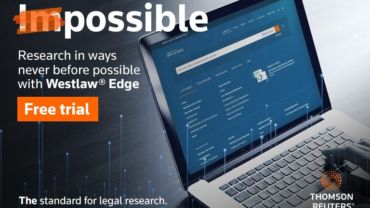On-boarding of new and returning employees takes on new meaning as we plan the next phase of where and how to work in the post-pandemic environment
Going forward, on-boarding is not just for people new to a firm or organization, but for anyone, given the new rules and ways of operating during a time I am calling a “big experiment.”
In the big experiment, there is an opportunity to reflect, assess, and incorporate key components of the on-boarding process that have largely been missing from an exceptional employee experience previously.
During the second half of 2021, more and more employees of law firms, corporate legal departments, and tax & accounting firms have begun the return-to-office phase of the pandemic, and this trend will continue rolling out. Most professionals and staff within the accounting and legal industries have been working remotely for almost a year and a half. (I have worked with multigenerational workplaces for more than 20 years in both law and accounting firms.)
In most cases, a new way of operating is needed as the workforce approaches the post-pandemic reality. That new way will include the design and lay-out of the work space itself, how work gets done, and how all personnel perceive their treatment. This will continue to be an experiment for at least a few years. In some ways it may seem restrictive, and in others more democratic. On-boarding will be an experience for almost everyone, even long-tenured employees.
How to clarify & restore expectations
Personnel at all levels will need to understand what the expectations are for their roles. They will need reminding of expectations in terms of culture, including what is considered a good work ethic, how professionalism is defined, and the possibilities around flexibility. Many aspects of the workplace culture have evolved during the pandemic, and revisiting these items is good practice for those returning to the office full time, those working remotely full time, and those with work arrangements in between.
Part of this process also means targeting more seasoned lawyers and CPAs to help bridge gaps in understanding the values, preferences, and work norms of younger generations — and vice versa. Lawyers and accountants from younger generations need to learn and appreciate how the environment had been for the seasoned lawyers when they were younger. Learning different perspectives and worldviews helps to head off generational clashes and communication blunders. For example, it is likely that generational differences exist in defining workplace flexibility that influence perceptions of good work ethic, professionalism, and what makes an outstanding lawyer or CPA.
Further, the new on-boarding paradigm requires additional supervisor and manager development, particularly up-skilling on personal effectiveness skills, such as achieving self- and social awareness, demonstrating empathy, checking in regularly on how each colleague is doing personally, listening and ensuring everyone feels included when they are working in teams both with colleagues working remotely and in-person.
Invest in additional manager development
Equipping people managers and supervisors with this expanded human performance skill set is a key ingredient to ensure a great employee experience. With the shift of the balance of power more to employees — whether temporarily or permanently — consideration of what current and future employees want from their job and how they want to live their lives should be a ongoing practice to maximize employee retention.
The younger generations are much more vocal about their needs and desires; and they don’t always just accept what the reality has been, which perhaps is more typical of Gen X and Boomer employees. The point is not to give the younger lawyers and accountants everything they say they want — they really don’t expect it. Rather, it is about enabling them to feel heard from the outset of joining the organization. Pre-pandemic, those individuals who were supervising, managing, and making the top decisions often didn’t know what employees wanted — and often they didn’t ask. Just the act of asking improves each employee’s experience, sense of belonging and, ultimately, retention.
Providing managers with specific ways to communicate these expectations and how this all contributes to the client’s needs is another key element. Ensuring younger lawyers and accountants regularly have access to their seasoned colleagues in order to better understand the expectations of a work assignment and how it is contributing to the outcome for the client often heads off confusion or conflict later on and is a key component of younger professionals’ learning experience. Similarly, feedback on the work product and access to clients helps normalize the sense of contribution to the organization. Assuring happy and engaged employees increases motivation and productivity and greatly helps to drive a positive client experience.
Ensure a positive new employee experience
Though the return-to-office phase will be an adjustment for everyone, firms should incorporate an expansion of the traditional ways to on-board new employees, such as:
-
-
- Matching each new employee with an orientation buddy for three to six months, whether it’s in-person or remote. Having one person available for questions and to help teach how to navigate the culture and norms of operating is always a good idea for on-boarding.
- Arranging frequent small group break-out meetings of six people or less for informal networking that allows people to open up also helps in the on-boarding of new colleagues.
- Encouraging low-pressure socializing in-person is key, because not everyone feels comfortable with being told “you have to show up for this event,” if they don’t know the attendees or have experienced past discomfort.
-
This new on-boarding paradigm began pre-pandemic, and it was accelerated with the onset of COVID-19. More than ever, legal and tax organizations must operate with the employees at the center, customizing their approach. For many it’s a new muscle to train, but will pay off in strength, endurance, and sustainability of the business and empowering of a positive culture.







